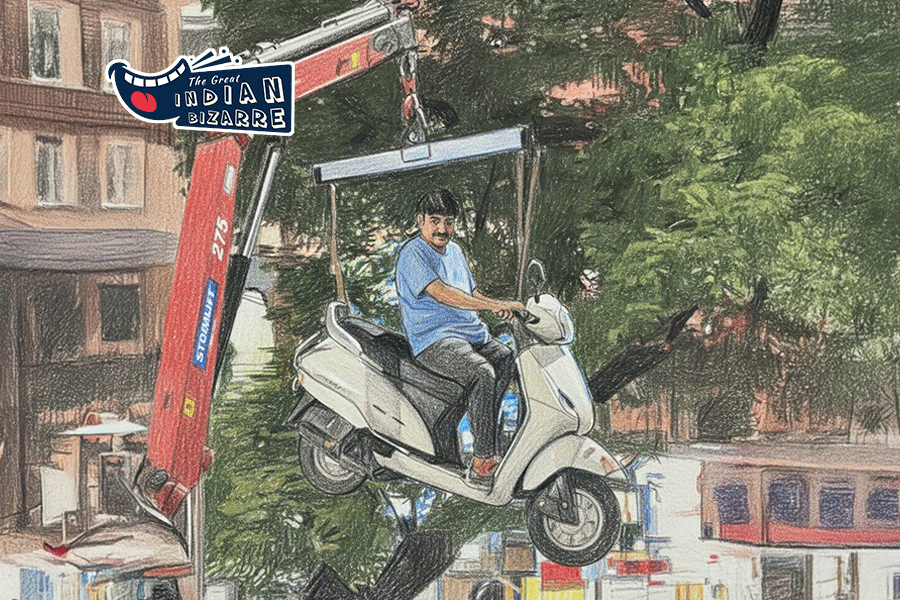 |
| A woman walks to collect twigs amid stems of trees chopped at the proposed Posco plant site at Noliashai in Jagatsinghpur district. (AP) |
Bhubaneswar, July 26: The state government seems to have made up its mind about not renewing its MoU with the South Korean steel major, Posco, for its proposed 12-million-tonne steel project unless the latter agrees to drop the clause for the swapping of iron ore.
This assumes significance in view of South Korean President Lee Myungbak’s request to his Indian counterpart Pratibha Patil to help accelerate the pace of the Rs 51,000-crore project during her visit to the country.
The company is facing stiff opposition from the local residents and the state government is struggling to acquire land for the project.
Steel and mines minister Raghunath Mohanty said: “We have asked the company to give in writing that they will drop the swapping clause. The ball is in their court now. The revised proposal will also be examined by the law department.”
Moreover, the state government has also asked the company to give written assurance about recruitment of local people in the plant and development of the downstream industries.
Under the swapping clause, earlier, Posco was allowed to import 30 per cent of iron from other countries in exchange of an equal amount from the state. After the Opposition had made a hue and cry over the issue, the state government was forced to ask the Posco authorities to drop the swapping clause.
Senior officers of state government said: “As they are unable to take a final call on the government’s proposal, process of renewal of the MoU is getting delayed. Moreover, once the swapping proposal is dropped, there will hardly be any need for a captive port for the project. All the raw materials coming and going out of the state can be checked at various points.”
However, the officers hoped that the Posco authorities would soon return to the negotiation table and renew the MoU. “Only by signing of MoU again, they will be able to win the confidence of the bankers for the proposed project,” the officers said.
Sources said Posco had also set a condition stating that it needed firm commitment from the government that it would get land within a stipulated time period and was not in favour of acquiring land in a phased manner.
Sources in the steel and mines department said: “Posco has maintained that if it is unable to get the land in toto, it would be difficult for it to implement the master plan which it had earlier prepared for the project.”
Nodal officer for the Posco project Priyabrata Patnaik said: “Posco has asked for 4,004 acres. The Industrial Infrastructure Development Corporation with the help of the Jagatsinghpur district administration has acquired 2,500 acres. Fencing work is going on. Posco has paid for the land acquisition.”
Similarly, the state government’s clause regarding giving majority of employment to the local people has also put the company in a difficult situation. As per the new guidelines of the government, the company had to reserve 90 per cent of jobs for unskilled and semi-skilled, 60 per cent posts at skilled and 30 per cent at the supervisory managerial level from the local people.
Similarly, the state government has asked the Posco authorities to give an assurance about development of downstream industries in the peripheral areas of the proposed plant site. “If no downstream industry is developed, the state cannot expect to generate the kind of tax revenue projected while signing the MoU in 2005,” said an official.
It is projected that the state was likely to earn Rs 89,000 crore over a period of 30 years by way of excise and custom duties, services, taxes and corporation and income tax. Similarly, it will also rake in Rs 2.25 lakh crore over the same period by way of sales tax, works contract, electricity duty, royalty and share of central taxes. The revenue earning per year will be Rs 700 crore to Rs 800 crore.











